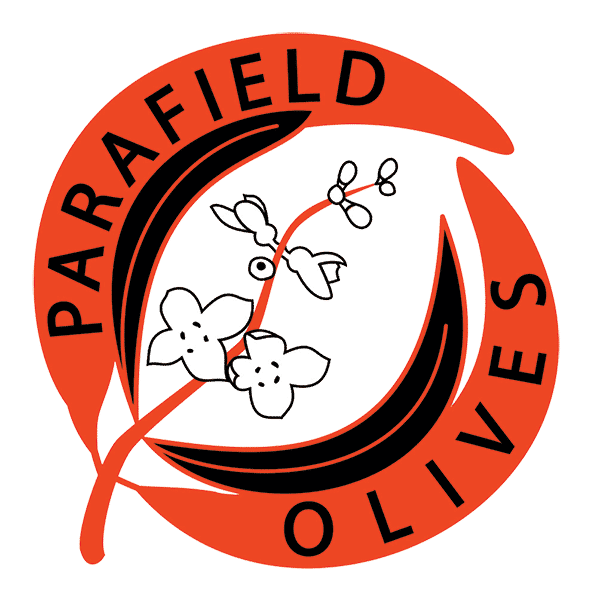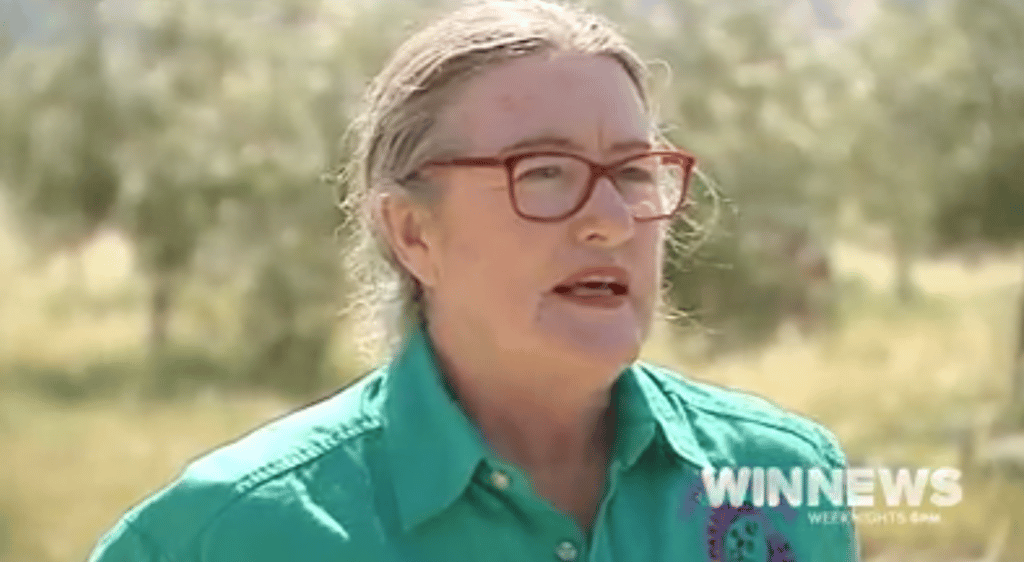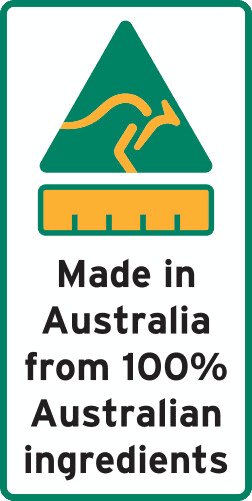
Blog
Sydney Royal Fine Food Show
Parafield Olives win GOLD, SILVER and BRONZE
at the Sydney Royal Fine Food Show 2018.
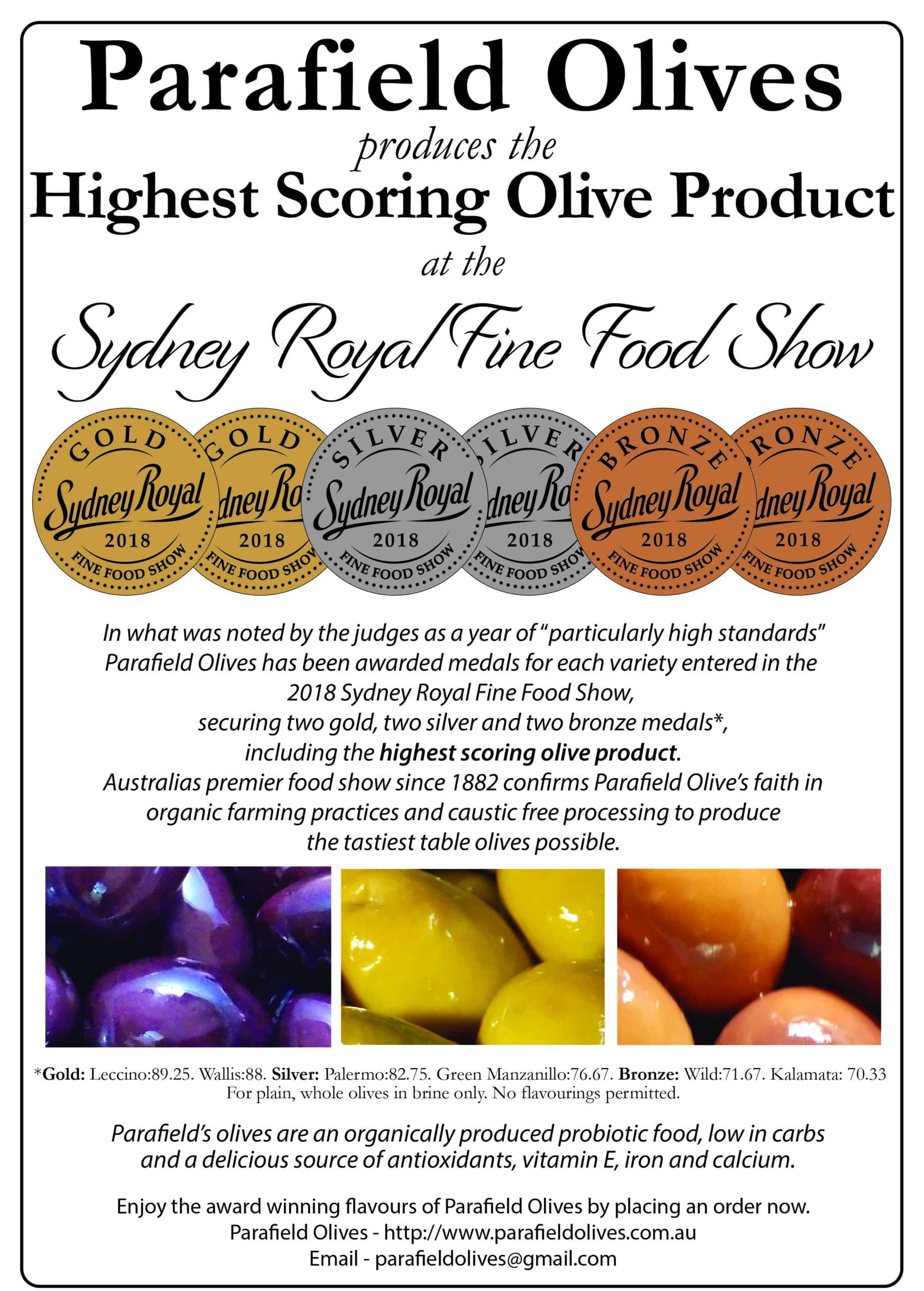
In what was noted by the judges as a year of
“particularly high standards”
Parafield Olives have been awarded medals for each variety entered
in the Sydney Royal Fine Food Show this year, which makes it three consecutive years.
Securing two gold, two silver and two bronze medals* and achieving highest scoring overall olive product in the show with the Leccino, which included olive oils, flavoured oils and flavoured olives categories.
This gaggle of awards confirms Parafield Olive’s faith in their
organic farming practices and caustic free processing.
Parafield table olives are an organically produced probiotic food, low in carbs and a delicious source of antioxidants, vitamin E, iron and calcium

*Gold: Leccino – Deep mauve to light brown. Gold: Wallis – Green Olives.
Silver: Green Manzanillo – Green Olives. Silver: Palermo – Carousel of port wine, browns, greens and yellow.
Bronze: Kalamata – Deep magenta. Bronze: Wild – Purple.
All naturally cured in salt brine not caustic
Margie Sets Table For Success
Margie Carter’s olives are at the top of the barrel, collecting a medal for every category entered in the Sydney Royal Fine Food Show.
Parafield Olives won gold for their green Wallis variety, three silver and four bronze in the competitive national show.
WIN News Coverage
A Wagga olive grower’s produce is top of the barrel, taking out a medal for every category entered in the Sydney Royal Fine Food Show. After a successful harvest this year, Margie Carter is looking ahead to next year, with plans to expand…. Watch full video below.
Parafield pips the competitors
TWENTY minutes down the road from Wagga is a farm producing some of Australia’s finest olives.
Yarragundry’s Parafield Olives was awarded a silver medal for Kalamata table olives at the Sydney Royal Fine Food Show, a national competition discovering Australia’s best fine food producers. Parafield also won a bronze medal for Palermo table olives.
However, the big wins should come as no surprise to anyone who knows Parafield Olives founder Margaret Carter, a self-proclaimed connoisseur who can’t stand the mass-produced imports.
“It’s like going from fine wine to ‘goon;’ Ms Carter said.
“Most olives are done in caustic soda in three days, mine are done naturally in brine and while it takes 12 months they taste far better:’
In a (happy) pickle
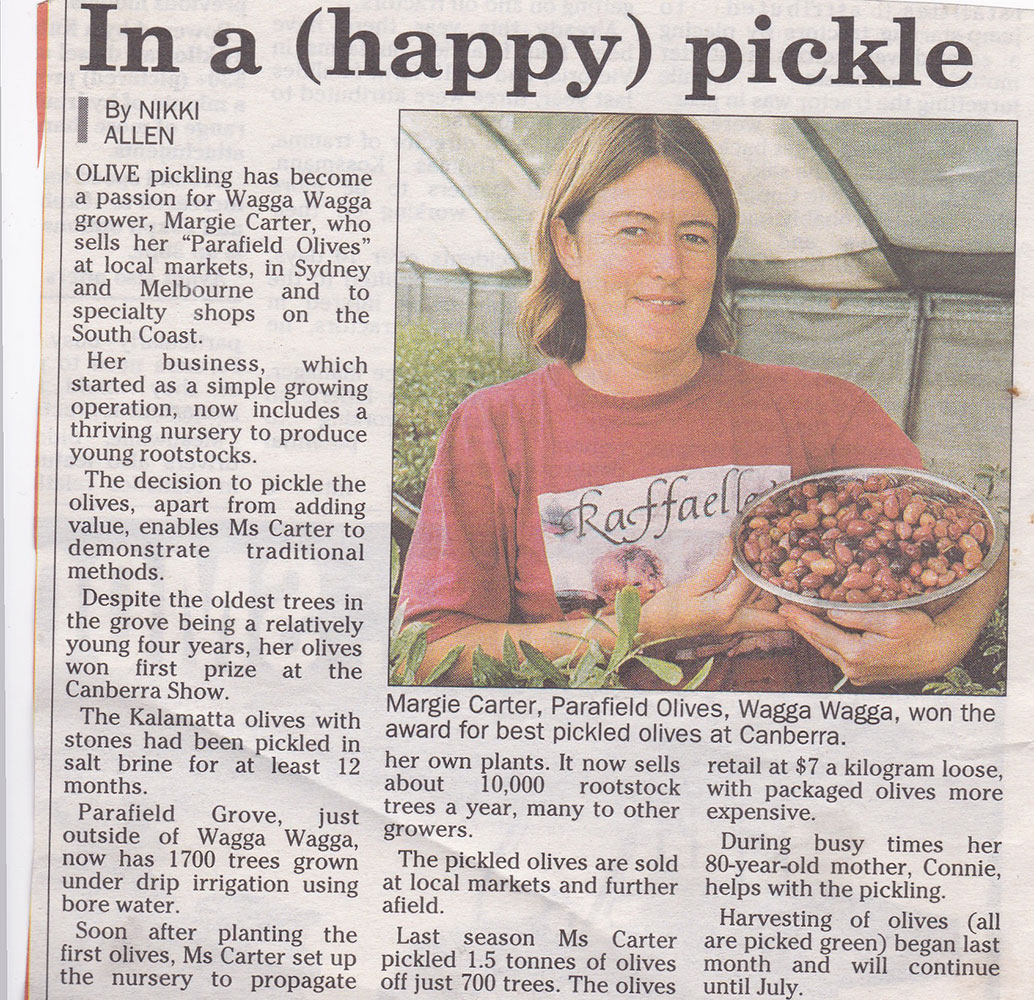
OLIVE pickling has become a passion for Wagga Wagga grower, Margie Carter, who sells her “Parafield Olives” at local markets, in Sydney and Melbourne and to speciality shops on the South Coast.
Her business, which started as a simple growing operation, now includes a thriving nursery to produce young rootstocks.
The decision to pickle the olives, apart from adding value, enables Ms Carter to demonstrate traditional methods.
Despite the oldest trees in the grove being a relatively young four years, her olives won first prize at the Canberra Show.
The Kalamata olives with stones had been pickled in salt brine for at least 12 months.
Parafield Grove, just outside of Wagga Wagga, now has 1700 trees grown under drip irrigation using bore water.
Soon after planting the first olives, Ms Carter set up the nursery to propagate her own plants. It now sells about 10,000 rootstock trees a year, many to other growers.
The pickled olives are sold at local markets and further afield.
Last season Ms Carter pickled 1.5 tonnes of olives off just 700 trees. The olives retail at $7 a kilogram lose, with packaged olives more
expensive.
During busy times her 80-year-old mother, Connie, helps with the pickling. Harvesting of olives (all are picked green) began last month and will continue until July.
Tonnes of rare olive tree wood
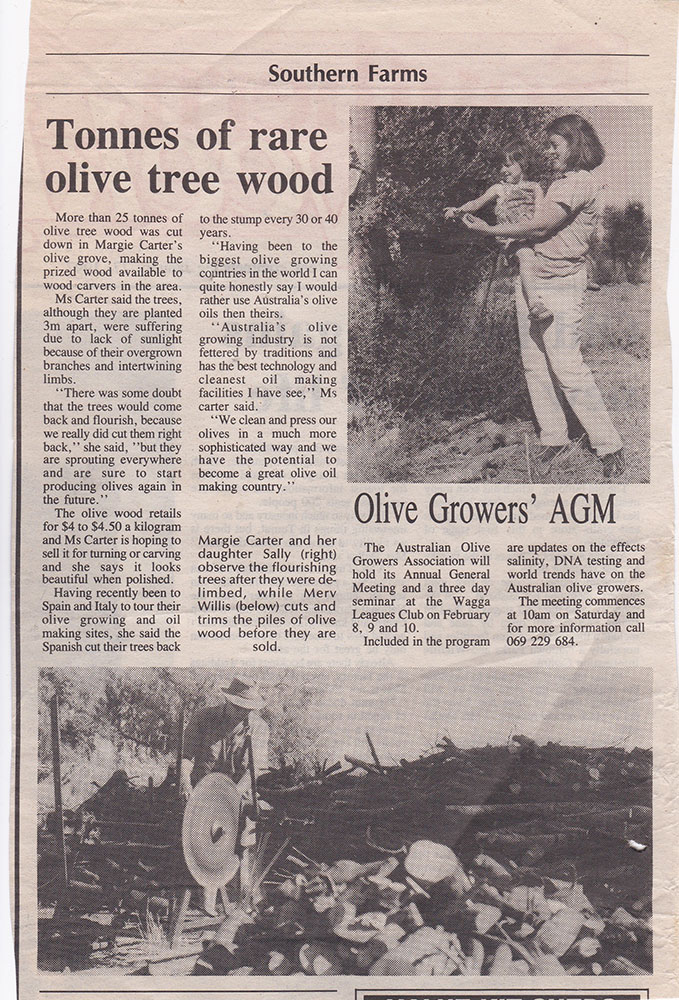
More than 25 tonnes of olive tree wood was cut dowr in Margie Carter’s olive grove, making the prized wood available to wood carvers in the area.
Ms Carter said the trees, although they are planted 3m apart, were suffering due to lack of sunlight because of their overgrown branches and intertwining limbs.
“There was some doubt that the trees would come back and flourish because we really did cut them right back,” she said, “but they are sprouting everywhere and are sure to start producing olives again in the future. ”
The olive wood retails for $4 to $4.50 a kilogram and Ms Carter is hoping to sell it for turning or carving and she says it looks beautiful when polished.
Having recently been to Spain and Italy to tour their olive growing and oil making sites, she said the Spanish cut their trees back to the stump every 30 or 40 years.
“Having been to the biggest olive growing countries in the world I can quite honestly say I would rather use Australia’s olive oils then theirs.
“Australia’s olive growing industry is not fettered by traditions and has the best technology and cleanest oil making facilities I have seen,” Ms Carter said.
“We clean and press our olives in a much more. sophisticated way and we have the potential to become a great olive oil making country. ”
Olive Growers’ AGM
The Australian Olive Growers Association will hold its Annual General Meeting in Albury from October 16th – 19th.
Included in the program are updates on the effects salinity, DNA testing and world trends have on the Australian olive growers.
The meeting commences at lOam on the 16th. For more information contact Greg Seymour (CEO) 0476760160.
Categories

